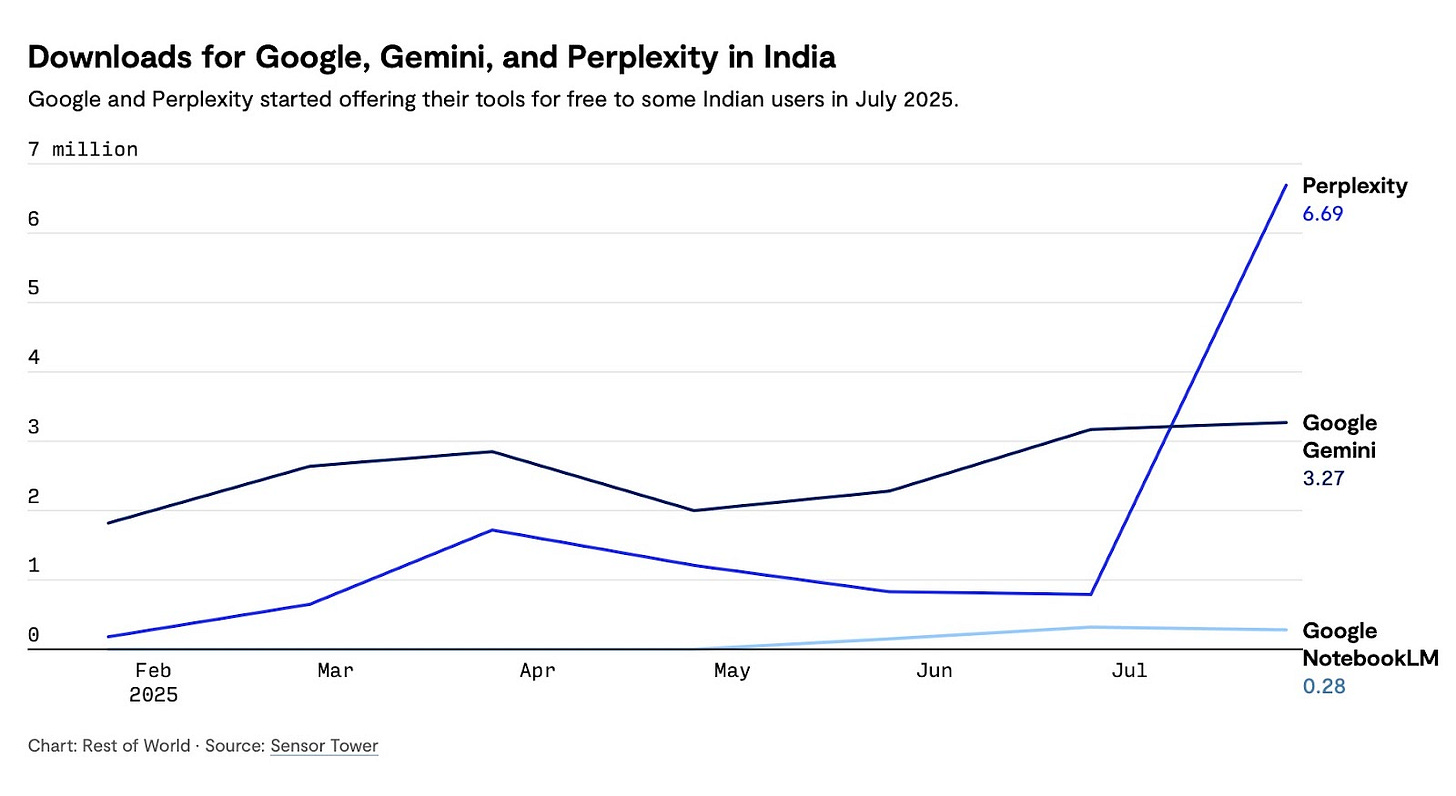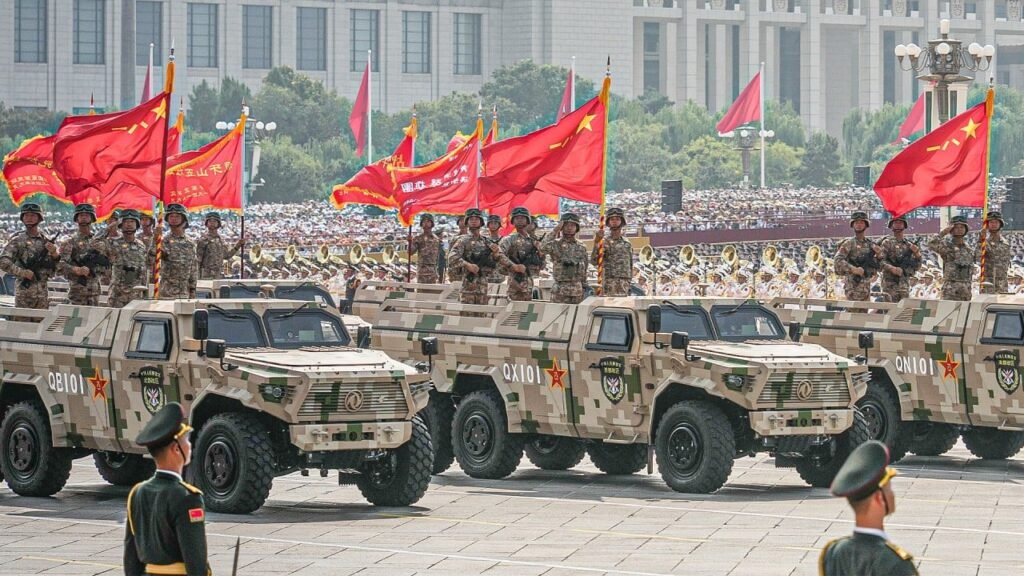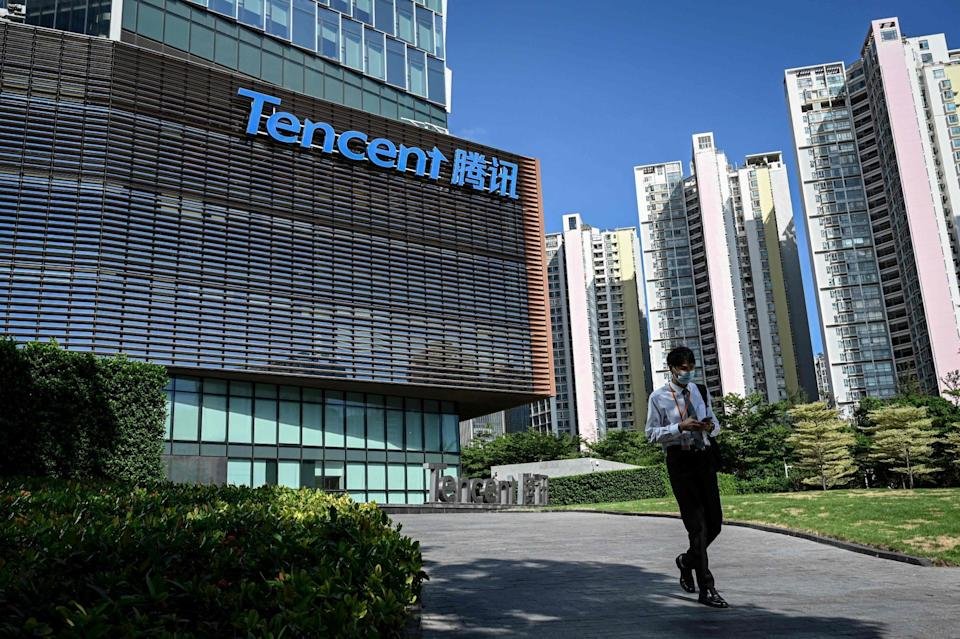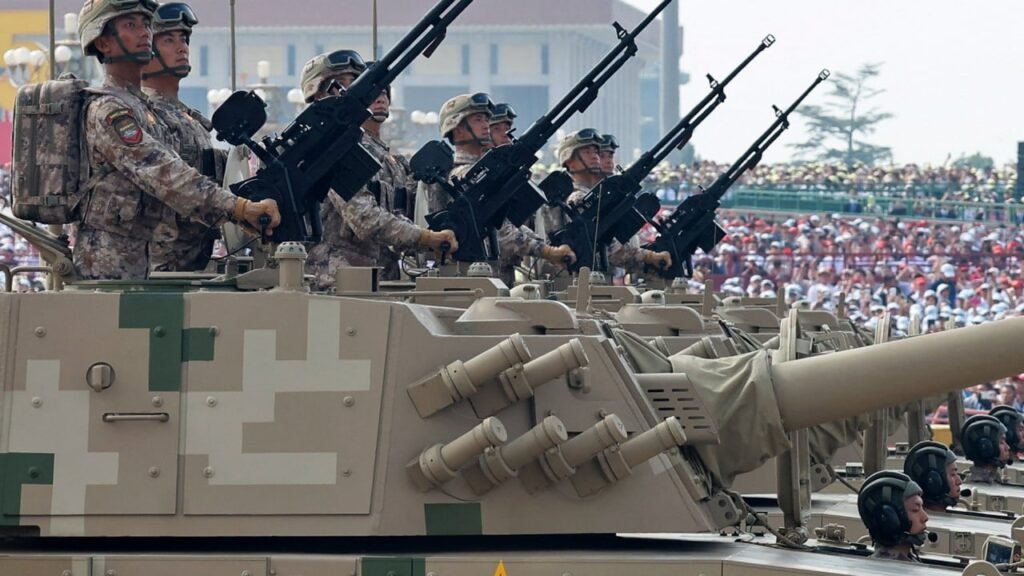A recurring theme in Asia Tech Review is China’s push for tech self-sufficiency. Reliance on the US has proven risky, as recent tariffs have shown. Last week brought signs that the effort is starting to pay off.
DeepSeek, which embodies much of China’s AI ambition, is now training some of its models on Huawei chips, according to The Information. That doesn’t cover all of its workloads, but it does show a meaningful step away from Nvidia. For DeepSeek, a reliable chip supply is critical, and US-based hardware can’t be guaranteed. For Beijing, it’s evidence that companies are heeding the call to adopt local technology.
Baidu added fuel to that momentum, unveiling an AI computing platform built entirely on Chinese chips. Its Kunlunxin unit’s processors power the new Baige 5.0 system, which the company claims boosts the efficiency of DeepSeek’s R1 reasoning model by about 50%.
Not to be outdone, Alibaba is reportedly developing a more versatile AI chip designed to replace offerings from Nvidia, AMD and others.
These moves suggest that China’s heavy investment is beginning to bear fruit. Domestic chipmakers aim to triple AI processor output next year, with Huawei among the main beneficiaries. The FT reported that one fab producing Huawei’s AI chips will start before year-end, with two more to follow in 2026. The ownership of those fabs remains murky, since Huawei previously denied plans to build its own foundries.
Huawei aside, others are riding the wave too. Cambricon Technologies swung from a loss last year to a record 1.03 billion CNY ($145 million) profit in the first half of 2025. Its stock is up more than 5x during that period as investors bet it could become China’s next AI champion. Its fortunes are also closely tied to DeepSeek’s rise.
On the demand side, Beijing launched a national computing platform linking 10 provinces to share underused resources. That’s part of a broader plan to make AI a growth engine that could add trillions of yuan to the economy by 2035. Already, more than 100 service providers, 1,000 enterprise customers, and 100 AI models have signed on.
Have a great week,
Jon
Follow the Asia Tech Review LinkedIn page for updates on posts published here and interesting things that come our way. If you’re a news junkie, the ATR Telegram news feed has you covered with news as-it-happens or join the community chat here.
Reliance is betting big on AI after it announced a new subsidiary, Reliance Intelligence, to build gigawatt-scale green data centers and provide large-scale AI infrastructure to make AI services accessible nationwide.
India is becoming a key battleground for AI companies. We’ve seen Perplexity team up with operator Airtel and just last week OpenAI announced a new product that’s specifically designed for the India market, as well as plans for an office in the country. Reliance has shown a keenness to be part of the next big thing—as it did with e-commerce and deliveries—and AI is very much that.
“A decade ago, digital services became a new growth engine for Reliance. Now, the opportunity before us with AI is just as large, if not larger,” Chairman Mukesh Ambani said at the company’s launch event.
In true Reliance fashion, it called in two of tech’s biggest names to help it: Google and Meta—both of which have been major backers of its previous digital ventures.
Reliance and Google will work together to build a dedicated AI cloud infrastructure in India, starting with a data center in Jamnagar, a city in the western state of Gujarat. The goal is to offer AI-focused services to government bodies, companies and developers using Jio’s network and energy assets.
Meta and Reliance, meanwhile, launched a joint venture to offer Meta’s Llama-based enterprise AI platform-as-a-service. The two firms have put around $100 million into the operation, which Reliance has a majority 70% share of.
So far, so very Reliance. There was even something a little unexpected, as Ambani teased Reliance’s own AI glasses. Yes, that’s right.
Another major week of earnings saw China’s delivery battle and AI investments dominate financial reports:
HongShan, Sequoia’s China spinoff, has deployed only a quarter of its record $8.8B fund three years on, as weak deal flow, a sluggish economy, and US-China tensions slow investment link
Intel has maintained little-known partnerships with Chinese surveillance firms including Uniview, Hikvision and Cloudwalk, all of which have faced US sanctions over human rights concerns linked to mass surveillance and the targeting of minorities link
Temu has restarted direct shipments from Chinese factories to US shoppers and ramped up ad spending after a US-China trade truce link
ByteDance is planning a new employee share buyback programme that will value the firm at over $330B—this follows positively as China growth saw Q2 revenue grew 25% YoY to hit $48B link
China’s Salt Typhoon attack hacked at least 200 US companies, according to the FBI link
JD.com is looking for a loan to fund a €2.2B bid for German retailer Ceconomy link
China dominates rare earths, but it faces new pressure as Western nations race to build rival supply chains despite high costs and scale challenges link
The US will revoke special waivers that let Samsung, SK Hynix and Intel receive US chipmaking equipment in China without a license, forcing case-by-case approvals within 120 days link
India banned real-money gaming on fantasy gaming platforms, as we wrote last week, but now the fear is that users will be pushed towards offshore platforms or illicit outfits—which are already said to generate $100B annual, compared to $5B for legal operators link
In response, gaming company A23 issued the first challenge to the government’s ban on online money-based games, a legal filing shows link
Krafton, the South Korean studio behind PUBG: Battlegrounds, is ramping up in India with plans to invest at least $50M a year and pursue acquisitions link
Elevation Capital launched a $400M late-stage fund to back IPO-bound startups link
Prosus is in talks to invest about $200M in Indian ride-hailing startup Rapido at a valuation of $2.5-$2.7B—the deal would raise the VC’s 3–4% stake and more than double the startup’s valuation since December 2024 link
Fintech startup Kiwi, which issues RuPay credit cards, raised $24M—it plans to launch credit lines on UPI link
Kiwi’s efforts are part of a broader move to use the UPI payments network to expand credit access link
India’s startups are racing against Amazon and Walmart to dominate 10-minute commerce, a market projected to hit $100B link
A look inside India’s billion-dollar e-waste empire, an informal recycling network profits from global trash at heavy human and environmental costs link
WizCommerce, an AI-driven sales and ecommerce platform for wholesale distributors, raised $8M led by Peak XV link
OYO is reportedly finally gearing up to go public: the startup is said to be filing DRHP (Draft Red Herring Prospectus) in November, with a valuation target of $7-8B for its listing link
Supply chain planning platform Enmovil raised $6M link
Bengaluru’s tech sector has boomed over the past two decades, but the city’s infrastructure is struggling to keep pace link
Banking infrastructure startup TransBnk has raised $25M link
Japan and India are moving to shift production of older semiconductor and LCD technologies to India, part of a joint push to cut reliance on China and boost economic security ties. link
An Indian anti-corruption court sentenced 14 men, including 11 police officers, a former district police chief, and a former legislator, to life in prison for a 2018 kidnapping that targeted a man for his crypto holdings link
Sea, the parent of Shopee, overtook DBS as Southeast Asia’s most-valuable company—its shares have rallied over 300% this year link
In addition to Shopee, Sea has seen significant growth on its gaming business as Free Fire became the highest-earning mobile battle game in the US link
Southeast Asia’s ride-hailing market is dominated by Grab but Vingroup, founded by Vietnam’s richest man, is pushing its EV rival GSM (Green & Smart Mobility) to expand access Southeast Asia to help promote its VinFast business as a global EV car brand link
Ripple and Circle are among the investors that took part in an undisclosed investment round for cross-border payments platform Tazapay link
Google says a China-linked hacking group targeted Southeast Asian diplomats in a cyber-espionage campaign, using fake software updates to install stealth malware and access sensitive files link
Indonesia’s Pintarnya, an employment platform that combines job matching with financial services and gig opportunities, raised a $16.7M link
Philippines has proposed to create a 10,000 Bitcoin strategic reserve with 20-year lockup—that’s around $1B based on today’s prices but the tokens would be purchased over a 5-year period link
There is also a proposal to place Philippines government budget on blockchain, according to reports link
Malaysia launched its first homegrown AI chip, the MARS1000—developed by local startup SkyeChip, it powers devices like cars and robots and marks a step toward building advanced tech capabilities, though it’s far less powerful than Nvidia’s leading data center chips link
Tokopedia has laid off a further 420 employees in second round of layoffs this year link
Indonesia summoned representatives from TikTok and Meta to order them to act against harmful online content with increased moderation link
TikTok suspended its live feature for the “next few days” in Indonesia following protests in the country link
SeaTown, a unit of Temasek’s asset management arm Seviora Holdings, raised more than $612M in the first close of its third private credit fund link
A suspected Chinese hacker was arrested accused of targeting BTS singer and other celebrities link
South Korea passed a law banning smartphone use during elementary and middle school classes starting next spring link
Operator SK Telecom has been fined $97M after a cyberattack caused a breach of personal data from its customers, impacting half of Korea’s population link
South Korean prosecutors have sought a 15-year prison sentence for Kakao founder Kim Beom-su on charges of stock manipulation tied to the 2023 battle for K-pop agency SM Entertainment. link
SoftBank’s Masayoshi Son has emerged as Donald Trump’s favoured foreign investor, winning backing for big bets on OpenAI and Intel after carefully cultivating ties with the US president link
SoftBank is riding a tech rally with its investments, but this rising AI exposure a source of concern for some investors link
Japan’s Nikkei and Asahi Shimbun sued Perplexity AI for copyright infringement, accusing it of reproducing their content without permission, bypassing protections, and inserting errors that hurt their reputations link
A major Japanese nail salon, Fastnail, is the latest company to attempt a reinvention as a Bitcoin holder link
TSMC is phasing out Chinese equipment from its most advanced 2nm chip plants to avoid possible US restrictions that could threaten production link
Taiwan prosecutors indicted three people, including a former TSMC employee, for stealing trade secrets to aid Tokyo Electron link
A group of governments and tech companies meet in Tokyo to discuss how to defend against North Korea’s scheme of having IT workers into roles link
The US sanctioned a Russian national and a Chinese company for helping siphon money from companies targeted by North Korea’s IT worker scheme link










